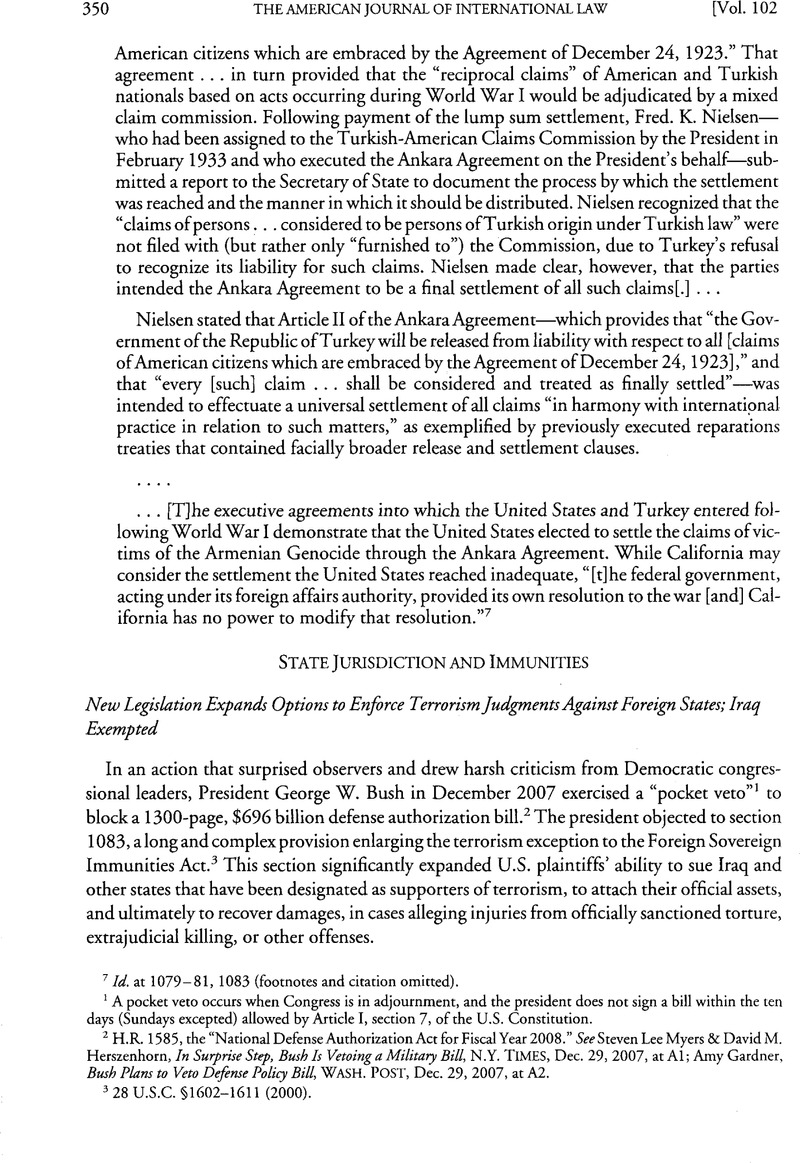No CrossRef data available.
Published online by Cambridge University Press: 10 March 2017

1 A pocket veto occurs when Congress is in adjournment, and the president does not sign a bill within the ten days (Sundays excepted) allowed by Article I, section 7, of the U.S. Constitution.
2 H.R. 1585, the “National Defense Authorization Act for Fiscal Year 2008.” See Steven Lee, Myers & David, M. Herszenhorn, In Surprise Step, Bush Is Vetoing a Military Bill , N.Y. Times, Dec. 29, 2007, at A1Google Scholar; Amy, Gardner, Bush Plans to Veto Defense Policy Bill , Wash. Post, Dec. 29, 2007, at A2Google Scholar.
3 28 U.S.C. §1602–1611 (2000).
4 George, W. Bush, Memorandum of Disapproval (Dec. 28, 2007)Google Scholar, at <http://www.whitehouse.gov/news/releases/2007/12/20071228–5.html>. The reasons for the veto are further described in White House Press Release, Setting the Record Straight: Defense Authorization Bill Veto Necessary to Secure Gains in Iraq (Dec. 28, 2007)Google Scholar, at <http://www.whitehouse.gov/news/releases/2007/12/20071228–7.html>.
5 National Defense Authorization Act for Fiscal Year 2008, Pub. L. No. 110–181, 122 Stat. 3.
6 David, M. Herszehhorn, After Veto, House Passes a Revised Military Policy Measure , N.Y. Times, Jan. 17, 2008, at A22Google Scholar; Glenn, Kessler, Bill’s Provisions May Help Terror Victims Gain Redress , Wash. Post, Jan. 26, 2008, at A12Google Scholar.
7 Memorandum of Justification for Waiver of Section 1083 of the National Defense Authorization Act for Fiscal Year 2008 with Respect to Iraq (Jan. 28, 2008) at <http://www.whitehouse.gov/news/releases/2008/01/20080128–12.html>.